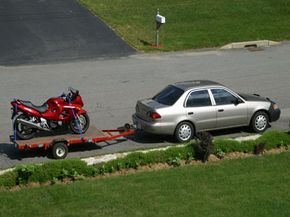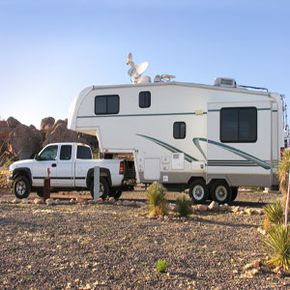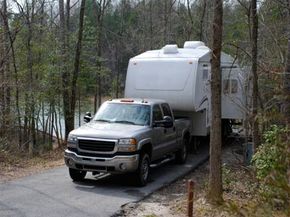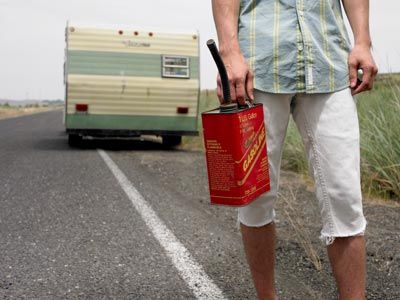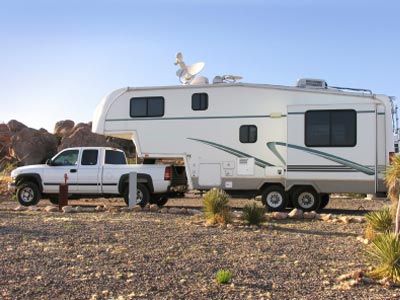There are a wide variety of hitch accessories available to keep your trailer secure. They come in different shapes and sizes and can be placed on different parts of the trailer and receiver hitch, but their function is the same: to keep your stuff from being stolen.
Receiver hitch locks fit crosswise into a hole on the receiver connected to your towing vehicle. They're used to lock whatever you're towing into the hitch so they can't be separated without a key or number combination. These are usually metal pins with locks on the ends. Some have two locks on either side, and some have a crooked end that prevents them from being pulled out.
Hitches are divided into different classes based on how much weight they can tow safely. They range from Class I, which can haul about 2,000 pounds and could be pulled by small cars, to Class V hitches that can easily tow 30,000 pounds or more and should only be pulled by heavy-duty pickup trucks. To learn more, take a look at How RV Hitches Work.
You'll want to make sure the lock you purchase fits your trailer, hitch receiver and other towing equipment. The most common trailer locks are half-inch and five-eighths of an inch in diameter. Class II receiver hitches use half-inch pins. Class III, IV and V receiver hitches use five-eighths inch pins [source: Trimax Locks]. You must make sure your lock matches up with what you're towing.
What happens when your trailer is unhitched from your vehicle? What if someone were to try and tow it away while it's sitting in your driveway? For that, you'd want a coupler lock. These U-shaped locks fit over the coupler on the trailer's tongue and prevents someone else from hooking up his vehicle to your trailer. Many have ball-shaped tops to go where the ball unit on your vehicle would normally go into the coupler. In short, this prevents another vehicle from hitching up to your trailer.
In addition, there are locks that fit over the wheels of your trailer that prevent them from being moved. These work on the same principle as the "boots" that get placed on the wheels of your when you get traffic tickets - with a big hunk of metal sitting on the tire, that trailer won't be going anywhere [source: Trailer Keeper].
In the next section, we'll show you how easy installing a hitch lock can be.
